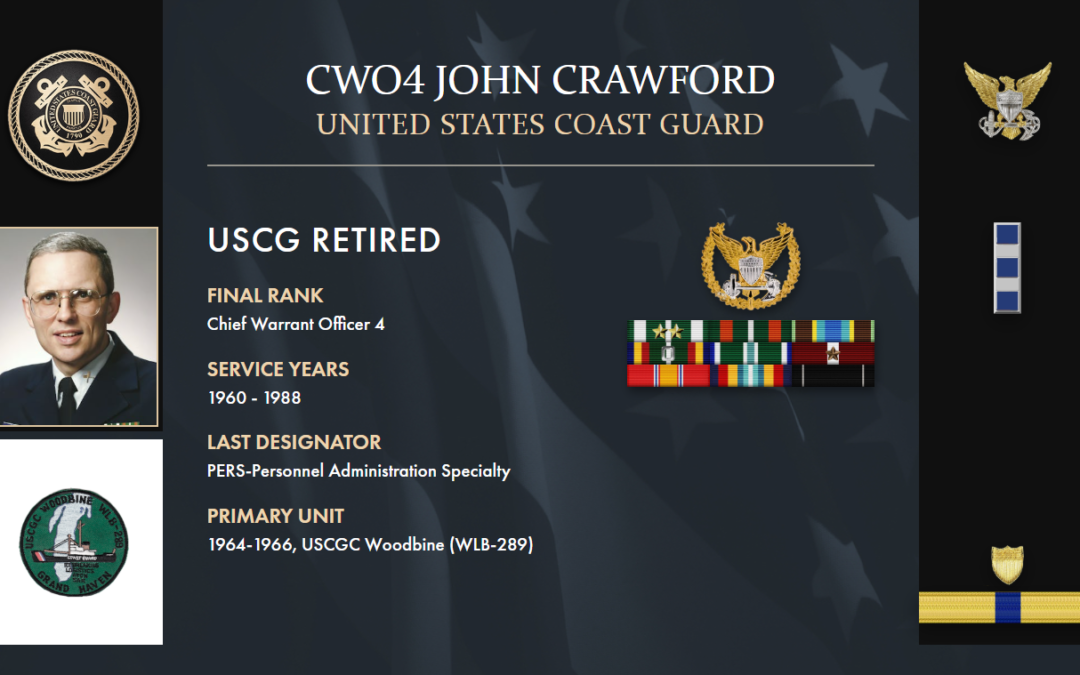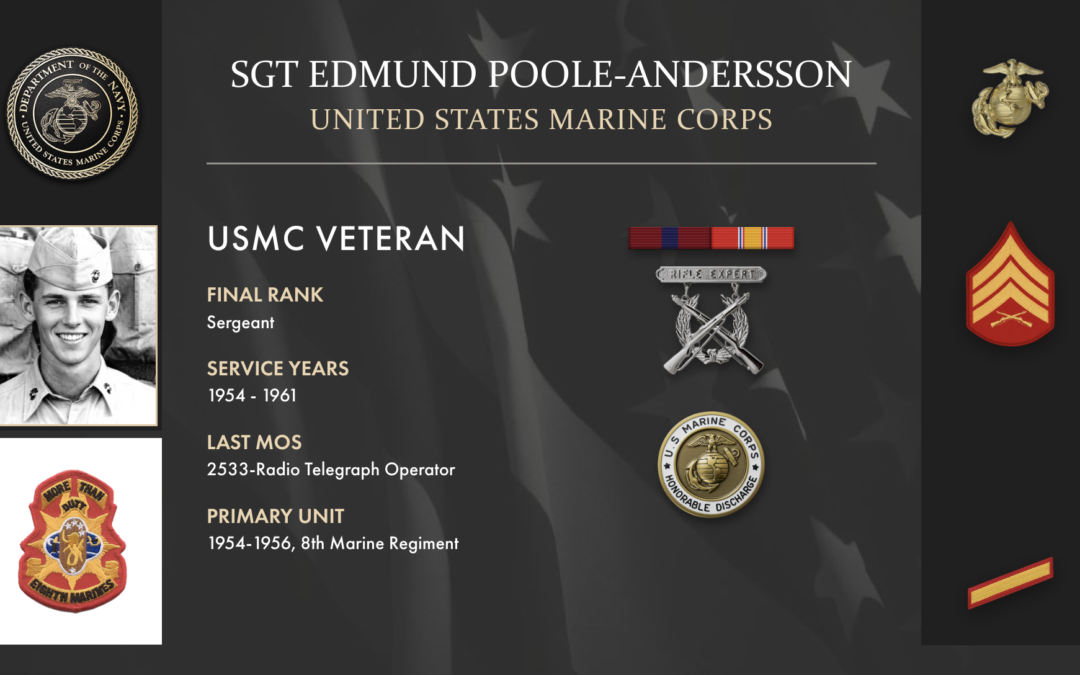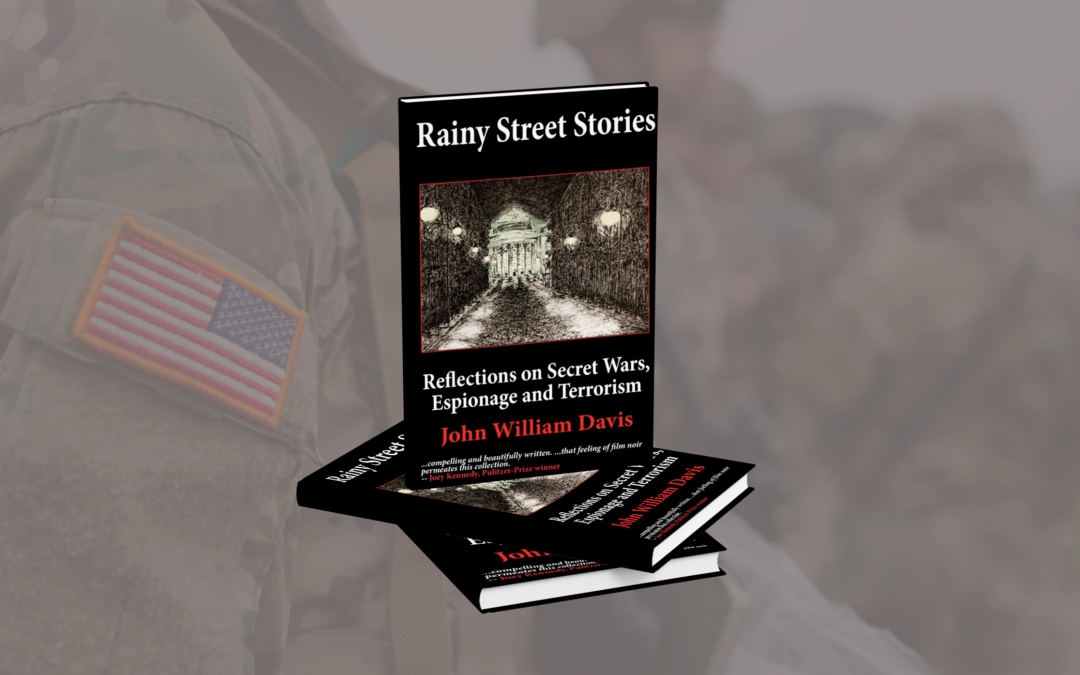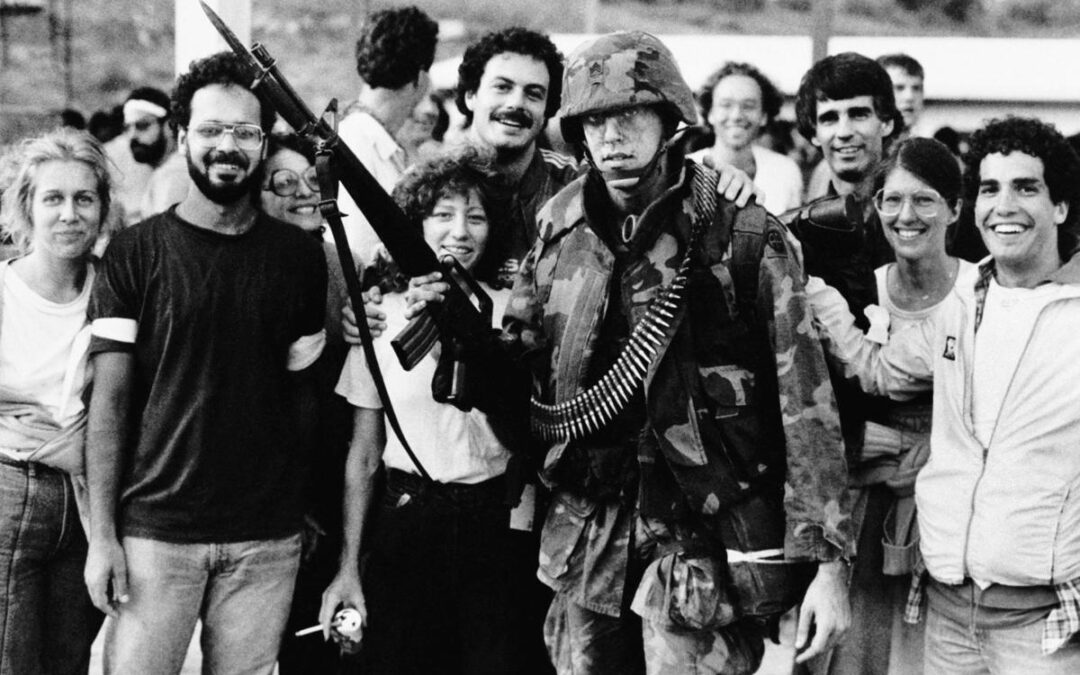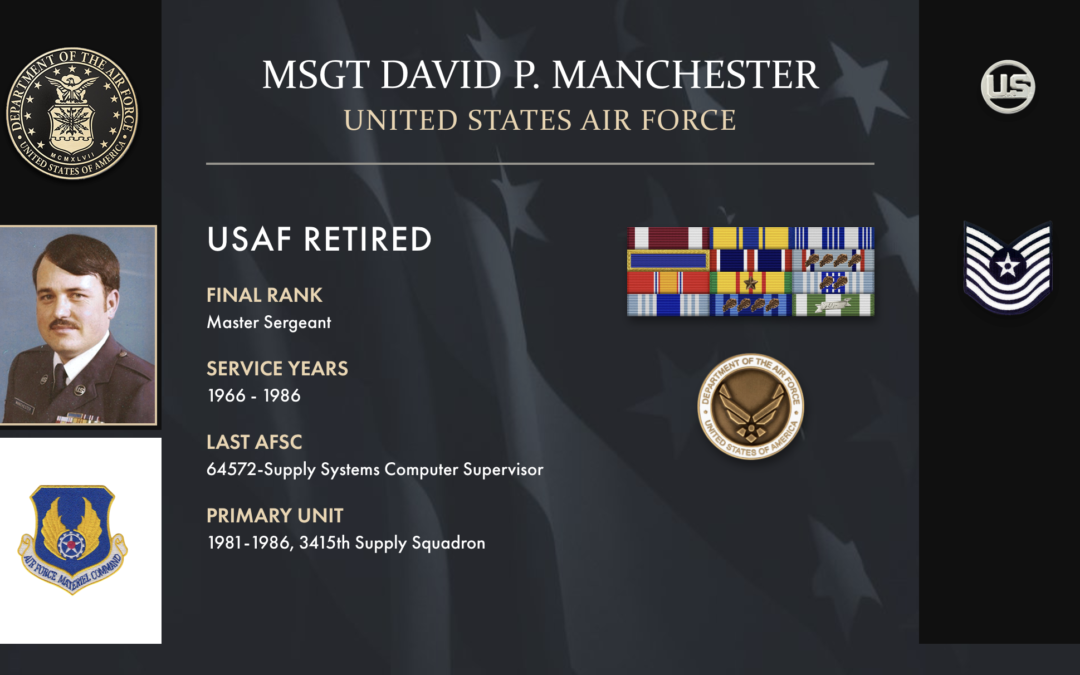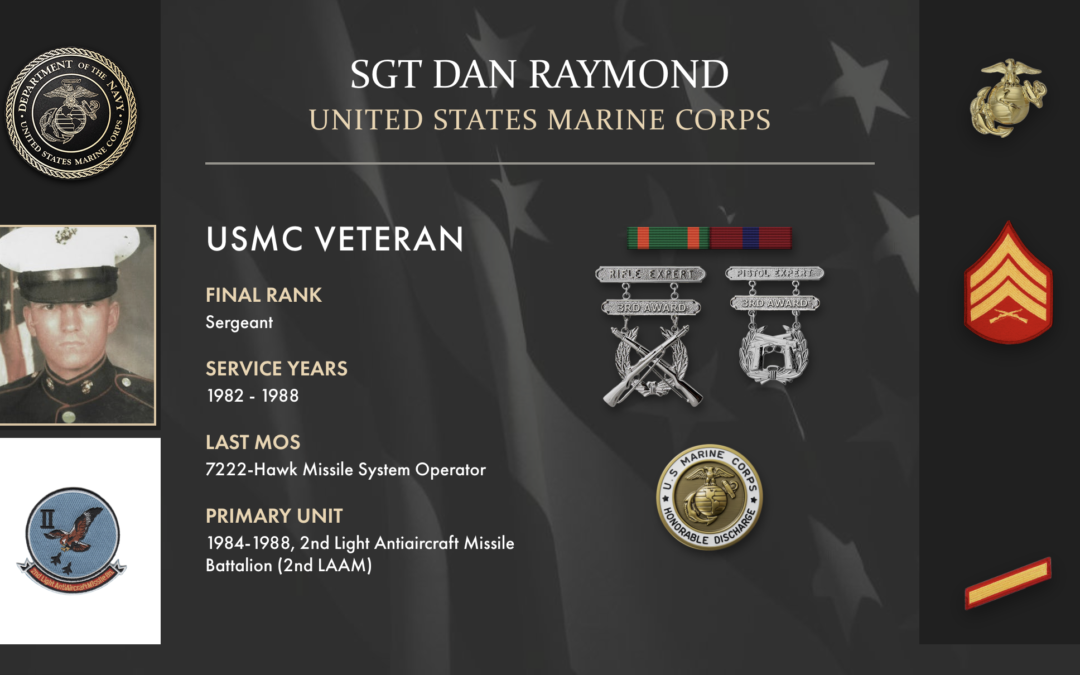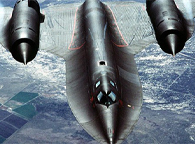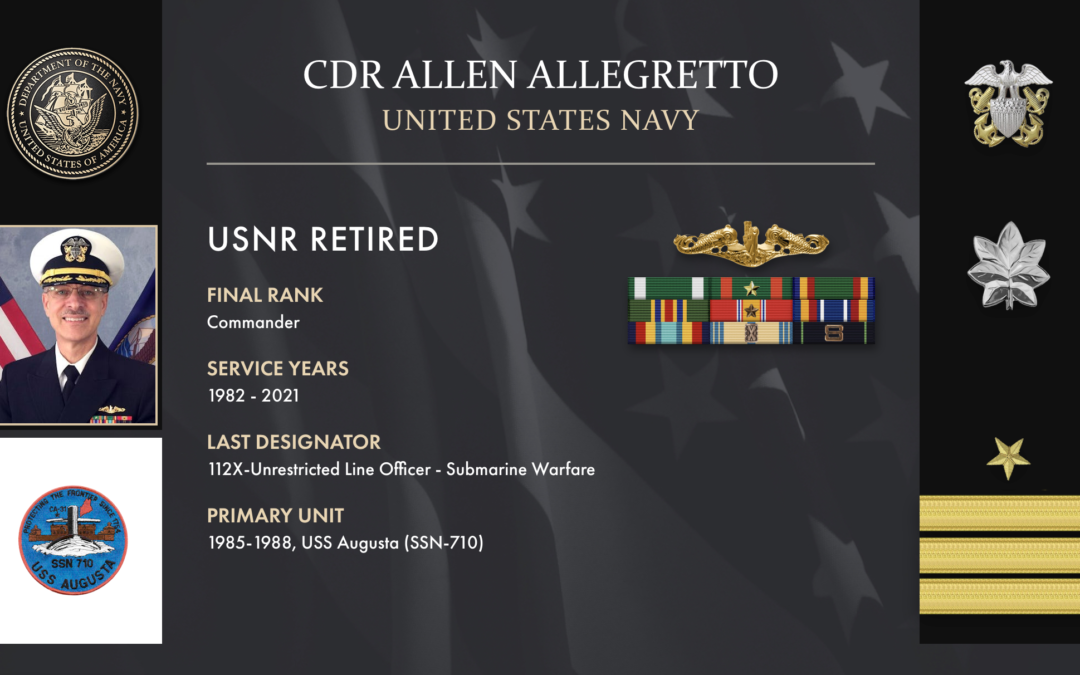When I graduated from Rochester (PA) High School in 1960, my opportunities were limited. I could not afford to attend college, and I did not want to become a steelworker or coal miner like the rest of my family. The Army draft was also hanging over my head! I chose the Coast Guard for its humanitarian and peacetime missions.
